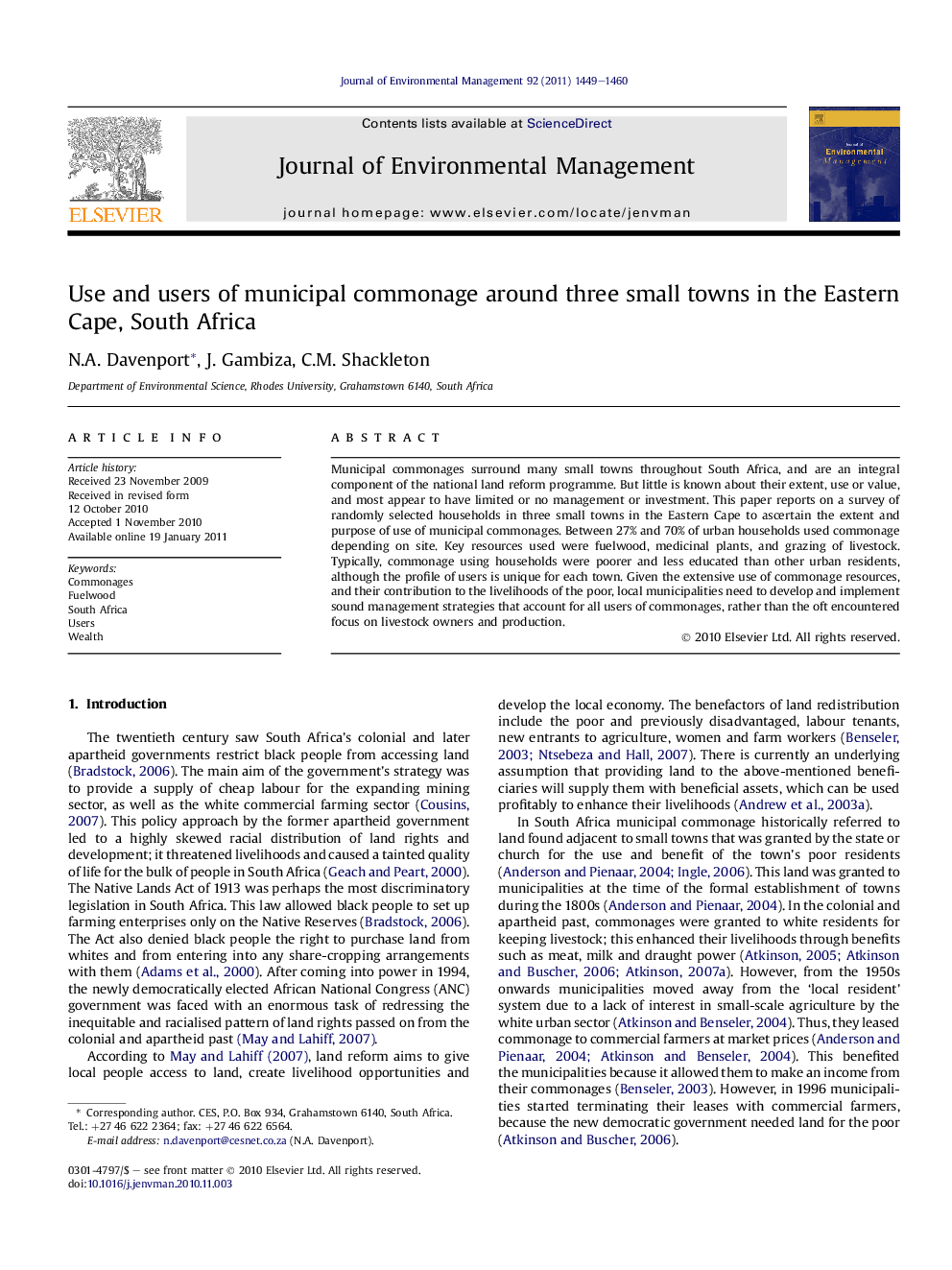| Article ID | Journal | Published Year | Pages | File Type |
|---|---|---|---|---|
| 10505472 | Journal of Environmental Management | 2011 | 12 Pages |
Abstract
Municipal commonages surround many small towns throughout South Africa, and are an integral component of the national land reform programme. But little is known about their extent, use or value, and most appear to have limited or no management or investment. This paper reports on a survey of randomly selected households in three small towns in the Eastern Cape to ascertain the extent and purpose of use of municipal commonages. Between 27% and 70% of urban households used commonage depending on site. Key resources used were fuelwood, medicinal plants, and grazing of livestock. Typically, commonage using households were poorer and less educated than other urban residents, although the profile of users is unique for each town. Given the extensive use of commonage resources, and their contribution to the livelihoods of the poor, local municipalities need to develop and implement sound management strategies that account for all users of commonages, rather than the oft encountered focus on livestock owners and production.
Keywords
Related Topics
Physical Sciences and Engineering
Energy
Renewable Energy, Sustainability and the Environment
Authors
N.A. Davenport, J. Gambiza, C.M. Shackleton,
